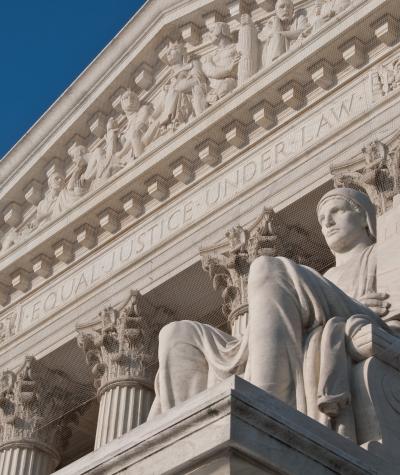On New Year’s Eve, Chief Justice John G. Roberts, Jr. shared his 2023 Year-End Report on the Federal Judiciary (Report). In past years, Chief Justice Roberts’ reports provided relevant historical context for an issue that concerned the federal courts in that year.
To many observers, it seemed obvious that 2023’s Report would address ethics: The year saw at least eight reports about various justices’ ethical lapses, and the Court released its first ever Code of Conduct. However, not only was ethics not the main subject of the Report; the chief justice did not mention the topic even once.
In the absence of an extensive discussion of ethics issues facing the nation’s highest court, one welcome and relatively simple addition to the Report would have been an acknowledgement of the need for ethics enforcement.
In 2023, trust in the Supreme Court fell to the lowest point in 50 years, with just 49% of Americans expressing confidence and trust in the judicial branch headed by the Supreme Court. For the public to regain trust in the Supreme Court, the Court must be held to the highest ethical standards and justices must be held accountable when they violate those standards.
A meaningful ethics enforcement mechanism is the lynchpin for effective ethics practices that can help rebuild the public’s trust.
This year, the Court took the first step by creating their new Code of Conduct, but a meaningful enforcement process was glaringly absent. The Report could have at least acknowledged the need for enforcement of the new ethics code and promised to work toward a process that was agreeable to both the Court and the public. But the chief justice failed to do even that.
Instead, Chief Justice Roberts chose to tackle artificial intelligence (AI) in federal courts. AI is a complicated issue, and not just in the judicial system.
In September 2023, CLC’s Founder and President Trevor Potter, testified before the U.S. Senate Committee on Rules and Administration about how AI has the potential to seriously impact the campaign finance system and elections more broadly. It certainly is vital that both the Court and Congress address the challenges AI presents to safeguard our judicial system and democracy.
It is disappointing that Chief Justice Roberts chose to ignore a problem that is currently eroding the public’s confidence in our democratic institutions in favor of discussing something that was not an issue in 2023. His willingness to discuss ethics in other years only emphasizes his seemingly intentional avoidance of the topic in 2023.
In 2011, Chief Justice Roberts spent the entire Report examining where justices look for guidance in resolving ethics issues after reporting throughout the year highlighted questionable ethical behavior by multiple justices.
In 2021, Chief Justice Roberts spoke about how seriously the judiciary takes ethics violations after a series of articles showed that federal judges traded stocks in a way that was inconsistent with federal ethics law.
Despite the omission of the topic in the chief justice's Report, ethics enforcement is critical to creating a trustworthy Supreme Court, and we hope the Court, or Congress, will implement an enforcement mechanism to accompany the Supreme Court Code of Conduct in 2024.

